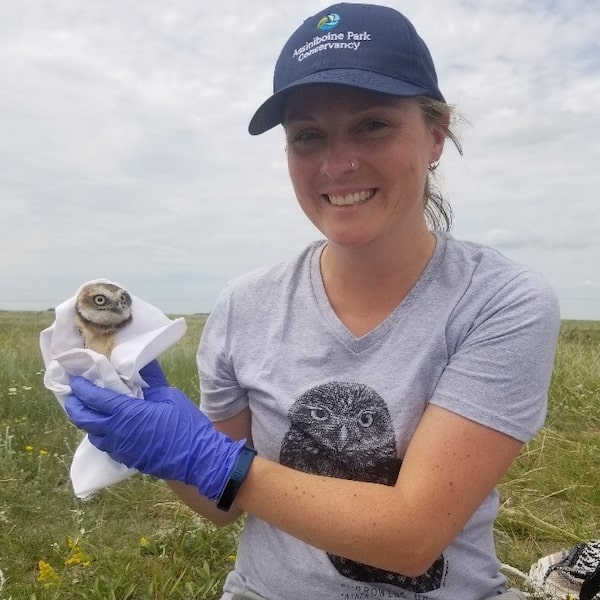If you’re reading this on the web or someone forwarded this e-mail newsletter to you, you can sign up for Globe Climate and all Globe newsletters here.
Good afternoon, and welcome to Globe Climate, a newsletter about climate change, environment and resources in Canada.
Thanks to technology and a collective desire to get outside, birdwatching is more popular than ever -- and spanning across generations too.
“The birding community has a lot of growing to do still, but I’ve seen a huge shift in birders, especially during COVID, with so many younger people and people of colour feeling included,” says Alyssa Couroux, 32. She is among a growing number of millennial birders who are helping to diversify the hobby. Read more about the big birding boom.
Now, let’s catch you up on other news.

Illustration by The Globe and Mail
Noteworthy reporting this week:
- Wildlife: Ontario battle over Highway 413 casts light on flawed species-protection rules
- Nuclear: Canada’s nuclear waste liabilities total billions of dollars. Is a landfill site near the Ottawa River the best way to extinguish them?
- Profile: How Canada’s Maurice Strong launched the environmental world order
- From The Narwhal: Ponds of toxic waste in Alberta’s oilsands are bigger than Vancouver — and growing
A deeper dive
Making the (economic) case for climate-friendly policy
Adam Radwanski is a climate policy columnist at The Globe. For this week’s deeper dive, he talks about the benefits to climate-friendly policies for governments to consider.
Last Wednesday, the federal government launched a new effort to work separately with each province and territory on building new low-carbon industries.
The next day, Doug Ford comfortably won a second term as Ontario’s premier.
There wasn’t a direct correlation between the two stories, especially since Ontario isn’t among the first few provinces with which Ottawa is setting up its new working groups (those are B.C., Manitoba and Newfoundland and Labrador).
But the connection still struck me, especially because of some comments that Natural Resources Minister Jonathan Wilkinson made when I interviewed him for our story on the federal announcement.
At one point in the interview, Mr. Wilkinson said he was appointed by Prime Minister Justin Trudeau to his current post (after serving as environment minister) specifically to bring a more economic focus to Ottawa’s climate agenda.
At another, he spoke of the reality that many people know climate change is a problem, but are unconvinced that addressing it will meet their families’ economic needs. “We need to be communicating that there are opportunities to ensure that Canada remains prosperous, and that we’re working on those opportunities,” he said.
A good number of people who voted for Mr. Ford’s Progressive Conservatives last week surely fit into that category. And if you squint a little, the Ontario Premier himself might as well.
Although Mr. Ford came to office seemingly skeptical about any climate-related policy at all, he was persuaded during his first term that it’s worth backing (with public dollars) some investments that bring clean-energy jobs – mostly electric vehicle manufacturing, as well as low-carbon steel production.
The challenge now, as I wrote following the provincial election, is to convince Mr. Ford that there are economic benefits to other climate-friendly policies – including those that, unlike making EVs primarily for export, would actually reduce Ontario’s greenhouse gas emissions. (Think, for instance, of renewable electricity’s potential both to help attract investment from companies increasingly committing to producing their goods in an affordable way, while minimizing ratepayers’ costs as wind and solar get cheaper and cheaper.)
Making that case is an imperative not just for environmental groups, but also for a federal government that has set ambitious national emissions-reductions targets and needs the most populous province along for the ride.
Mr. Trudeau’s Liberals have been contending since they first formed government that environmental and economic objectives intersect rather than being at odds with each other. But they’ve tended to publicly place as much or more emphasis on the moral imperatives of fighting climate change, than how it might benefit Canadians.
Mr. Wilkinson’s remarks last week suggested recognition in Ottawa of the need to focus more sharply on the economic side. The provincial election results suggest that shift is not a moment too soon.
- Adam
What else you missed
- Teck Resources donates thousands of hectares of land for conservation
- Canadian engineering firm WSP Global to buy John Wood Group’s environment consulting business for US$1.8-billion
- Biden waives solar panel tariffs for four countries, invokes defence law
- Hot temperatures and big storms to sweep much of Canada this summer, Weather Network predicts
- Experts expect bad year for ticks as disease-carrying bugs expand range in Canada
- Ottawa, NWT in talks with U.S. charity about funding for Indigenous park guardians
- Environmental activist disrupts French Open semi-final
Opinion and analysis
Thomas Homer-Dixon, Ian Graham, Ellen Quigley: A big bet on geothermal could help prevent a climate catastrophe
Dale Beugin and Blake Shaffer: Removing policy uncertainty can position Canada for a decarbonizing world
The editorial board: Flooding is a perennial and expensive disaster. Why aren’t we better prepared?
Glenn McGillivray and Korey Pasch: The derecho storm in Ontario and Quebec shows why we have to get better at anticipating and preparing for disasters
Green Investing
Is it possible to challenge the orthodoxy of ESG without getting cancelled?
Jeff Jones writes about Stuart Kirk, the top executive in charge of responsible investing at HSBC’s asset-management arm who went off-script at a public forum last month. He criticized those who make dire predictions about climate change and play up the finance industry’s responsibilities for combatting it. He has been sidelined as a result.
But, did Kirk make an ill-advised departure from his employer’s messaging on climate change, or did he play devil’s advocate and became a victim of corporate cancel culture? Jones says there should be a role for skeptics to question the orthodoxy. But how public? Here’s where it gets uncomfortable. Read more here.
- From ROB magazine: Mackenzie’s Benoit Gervais has figured out how to make resource funds ESG-friendly and make money
- Fossil-fuel shares lead the U.S. stock market. How awkward
- Four rules to see beyond product marketing in responsible investing
Making waves
Each week The Globe will profile a Canadian making a difference. This week we’re highlighting the work of C-Jae Breiter doing conservation and research.

C-Jae BreiterSupplied
I am C-Jae Breiter, research conservation specialist at Assiniboine Park Conservancy in Winnipeg. As a child, I spent my summers exploring the forest around my family cottage and it was my grandma who realized I’d grow up to be an entomologist. Fast forward 20 odd years, I now study everything from butterflies to burrowing owls to polar bears.
At Assiniboine Park Zoo, I am responsible for managing conservation strategies and research programs while running sustainable initiatives and environmental education. My job takes me to work in a field setting which can be anywhere in Manitoba – helping species in a diversity of ecosystems from the hot, dry prairies to the cold, windy tundra. Working in a zoo also presents a unique opportunity to help conserve animals in the wild. One area I currently focus on is helping test out new techniques to study polar bears in the wild like new tracking technology (Burr on Fur) and understanding hair growth rates and timing (Polar Bear Hair Growth).
I have committed my life to having a positive impact on our planet. I may be just one person trying to make a difference for wildlife but I believe that we can make great strides in protecting wildlife and wild places by working together toward a common goal.
- C-Jae
Do you know an engaged individual? Someone who represents the real engines pursuing change in the country? Email us at GlobeClimate@globeandmail.com to tell us about them.
Photo of the week

A climate activist ties herself to the net during the semifinal match between Croatia's Marin Cilic and Norway's Casper Ruud at the French Open tennis tournament in Roland Garros stadium in Paris, France, Friday, June 3, 2022.Thibault Camus/The Associated Press
Guides and Explainers
- Want to learn to invest sustainably? We have a class for that: Green Investing 101 newsletter course for the climate-conscious investor. Not sure you need help? Take our quiz to challenge your knowledge.
- We've rounded up our reporters' content to help you learn about what a carbon tax is, what happened at COP 26, and just generally how Canada will change because of climate change.
- We have ways to make your travelling more sustainable and if you like to read, here are books to help the environmentalist in you grow, as well as a downloadable e-book of Micro Skills - Little Steps to Big Change.
Catch up on Globe Climate
- Globe analysis reveals which cities are most at risk of flooding
- How to grow a climate change-fighting garden
- How two chefs are rethinking the local seafood supply chain in Ontario
- Scientists embark on their annual trek to measure glacier loss
We want to hear from you. Email us: GlobeClimate@globeandmail.com. Do you know someone who needs this newsletter? Send them to our Newsletters page.